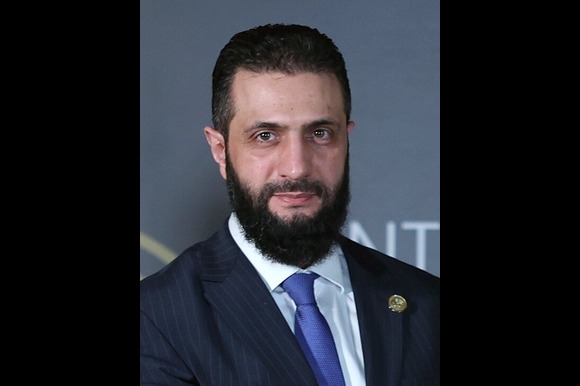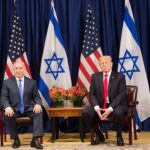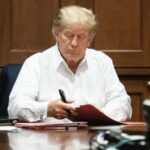Former US President Donald Trump has signed an executive order ending American sanctions on Syria, a move the White House described as part of Washington’s effort to back the country’s “path to stability and peace.”
The sanctions, which had blocked all foreign financing, were initially imposed on the regime of Bashar al-Assad, who was ousted by rebel forces in December. The White House emphasized that the United States would closely monitor the conduct of Syria’s new government, including its steps toward “normalizing relations with Israel,” “addressing foreign terrorist elements,” and “banning Palestinian terrorist groups.”
Syrian Foreign Minister Asaad al-Shibani welcomed the decision, calling it a measure that would “remove a major obstacle” to Syria’s economic revival and facilitate reintegration into the international community. Despite the rollback, US sanctions remain in place against Assad himself, his close associates, the Islamic State group, and Iranian proxy militias.
Trump had previously stated his intention to lift sanctions in May, shortly before meeting Syria’s newly appointed president, Ahmed al-Sharaa, in Riyadh. Sharaa, a former rebel commander, leads the Islamist group Hayat Tahrir al-Sham (HTS), which was formerly aligned with al-Qaeda until severing ties in 2016. Though HTS played a leading role in toppling Assad, it is still officially listed as a terrorist organization by the US, UK, and United Nations.
Monday’s executive order also instructs Secretary of State Marco Rubio to “review” the current designation of HTS. Additionally, it calls for the new Syrian administration to assume full control of the detention camps in northeastern Syria, where thousands of Islamic State prisoners remain confined.
Earlier this year, Rubio expressed strong support for Syria’s transitional government, cautioning that economic stagnation could reignite a “full-scale civil war of epic proportions.” Syria’s economy was left in ruins after Assad’s 13-year reign, with 90% of the population falling below the poverty line at the time of his ouster.
President Sharaa has pledged to safeguard the rights of Syria’s ethnic and religious minorities. Nevertheless, deadly violence has raised alarm within these communities. In March, hundreds of civilians from the Alawite sect—Assad’s own minority group—were killed in the western coastal region during clashes between loyalist forces and the new government’s security apparatus.
Tensions have also flared between Islamist militias, security forces, and Druze fighters, leading to further bloodshed. In June, at least 25 people were killed in a suicide bombing that targeted a church in Damascus.
Speaking ahead of Trump’s announcement, White House spokesperson Karoline Leavitt said the executive order fulfilled the president’s pledge to support peace in the war-ravaged country. “This is another promise made and promise kept by this president to promote peace and stability in the region,” she said.
US Special Envoy for Syria Thomas Barrack described the process of ending sanctions as “the culmination of a very tedious, detailed, excruciating process of how to unwrap these sanctions.”
“Syria needs to be given a chance, and that’s what’s happened,” he concluded.
Under Assad’s rule, more than 600,000 Syrians were killed and 12 million displaced over more than a decade of brutal civil war.






